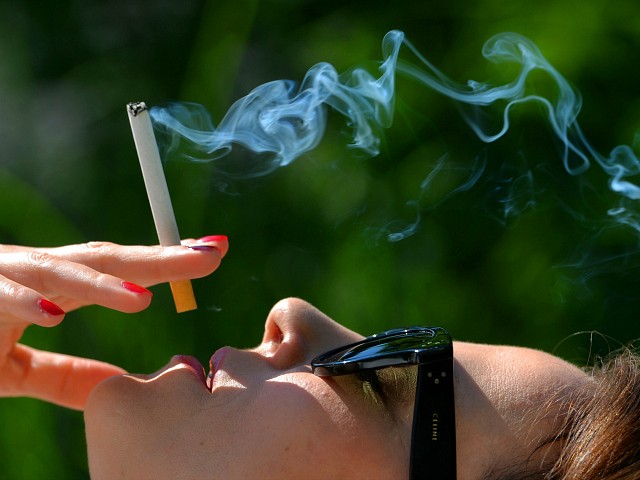Young people ages 18 to 34 are driving the increased belief that moderate alcohol consumption is “detrimental” to one’s health, a new Gallup poll found.
In 2018, 34 percent of young adults in the U.S. said drinking in moderation is “bad for your health.” That percentage jumped to 52 percent in 2023 — an 18-point change.
“This shift coincides with more recent consumer drinking trends, including a growing ‘mocktail’ industry as nonalcoholic alternative party elixirs become more popular among younger Americans,” Gallup analyzed.
The belief that drinking in moderation is “bad for your health” also increased among 35 to 54-year-olds within the same timeframe, from 26 percent to 39 percent. Adults 55 and up did not experience a significant shift concerning the question, going from 26 percent in 2018 to 29 percent in 2023.
Overall, a record-high share of Americans (39 percent) say consuming one to two drinks daily is bad for one’s health, which is an 11-point increase from 2018. Still, half of U.S. adults say drinking in moderation “makes no difference,” while ten percent say it is good for one’s health.

A person poors a glass of Prosecco during the 50th edition of the Vinitaly wine exhibition in Verona (VINCENZO PINTO/AFP/Getty Images)
The survey found that women (41 percent) are more likely than men (35 percent) to say moderate drinking is harmful. By region, Americans living in the Western (44 percent) and Midwestern (44 percent) regions of the United States are more likely than people in the East (34 percent) and South (35 percent) to think drinking in moderation is harmful.
Despite its dwindling health reputation, more than six in ten U.S. adults drink alcohol, 19 percent of which admit to sometimes overindulging, earlier Gallup polling found. Thirty-eight percent reported “abstaining completely.” The survey found that the 62 percent of Americans who report drinking alcohol lines up with Gallup’s 63 percent average dating back to 1939. Fifty-eight percent of 18-34-year-olds in that poll reported drinking, and 41 percent said they abstain.
Interestingly, alcohol is not perceived to be as harmful as tobacco or marijuana.
“When compared with other recreational and medicinal substances of consumption, U.S. adults perceive alcohol as less harmful than a variety of tobacco and nicotine-based products,” the survey report states. “While three in four say cigarettes are ‘very harmful’ to one’s health, fewer view chewing tobacco or cigars in this way, and an even lower 30 percent say this about alcohol.”
Marijuana received the “lowest level of health concern in comparison to other substances,” the survey found. However, other Gallup research has revealed that three in four U.S. adults are very or somewhat worried about the effects marijuana has on young adults and teens who use it regularly.

A recreational marijuana smoker indulges in smoking weed on April 14, 2020, in the Bushwick section of the Brooklyn borough of New York City (Photo by Bruce Bennett/Getty Images).
The poll was conducted from July 3-27 among 1,015 U.S. adults. The margin of sampling error is ±4 percent at the 95 percent confidence level.




COMMENTS
Please let us know if you're having issues with commenting.